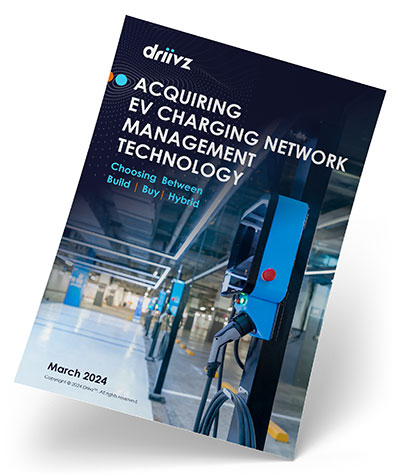Brick-and-mortar retailers and retail chains are constantly seeking new ways to drive revenue, especially with the ever-increasing growth of online shopping. In this blog we discuss how offering EV charging services can help retailers better differentiate and compete.
EV charging services can help retailers better differentiate themselves and compete; EV drivers want the freedom to charge anywhere, and it’s a great opportunity for retailers to step in to address this need.

Customers are generally loyal to specific retail sites and brands and offering EV charging reinforces that loyalty. Retailers can leverage EV charging services to extend their brand as a “green company,” which will attract new environmentally conscious customers and employees. Offering EV charging entices EV owners to visit their retail stores versus a competitor that does not offer EV charging services.
Retailers already have major real estate investments and significant customer-facing infrastructure – which they can further monetize by providing electric vehicle charge points.
Based on the type of battery, EV charging takes between minutes and hours – a significant opportunity to increase sales as customers wait for their vehicles to charge. Furthermore, EV charging itself and the additional onsite display advertising possibilities add to retailers’ revenue streams.
Retail EV Charging in Action
EVgo, the United States’ largest public fast charging network, is partnering with retailers to provide “at-the-ready” hosted charge point infrastructure. EVgo is offering turnkey charging solutions – everything from site design, permits, construction, procurement, installation, and power connectivity to long-term maintenance and self-service customer portals and apps.
EVgo is already providing EV charging solutions to a full range of retailers, including grocery stores like Albertsons, Kroger, Save Mart, Walmart, and Whole Foods Markets and retail site owners such as Kimco Realty, Macerich, and Simon Property Group.
Joining the eMobility Revolution
Offering EV charging requires a strong focus on customer satisfaction while achieving operational excellence.
The customer charging experience must be frictionless; thus, proactive and quick issue resolution is critical. As retailers have extensive experience in billing and payments, they need to ensure that adding EV charging doesn’t add any complexity for their customers. Another area retailers can leverage their existing approach to business is using reporting and insights-driven analytics to continuously improve the EV charging experience.
All these issues can be addressed with a robust EV charging and energy management platform.
Keeping customers satisfied means that every charge point works when they “plug in.” Retailers need a platform that ensures network availability and stability with 24/7/365 issue detection and resolution. It should be easy for vehicle owners to report problems and the retailer’s EV administrators to track and resolve them quickly.
Branded, intuitive, mobile apps and self-service portals make it easy for EV drivers to register, reserve a charge point, charge, and pay their bills.
By enabling easy integration with the retailers’ systems, the platform supports specialized loyalty programs and coupons for charging, special offers for purchases during times of charging, and more.
Another Way to Grow Profits – EV Driver Behavioral Analysis
The retail industry thrives on customer analytics, providing pricing guidelines, supply chain management insights, and more. The right EV charging management platform delivers similar reporting and insight analysis to gain deeper understanding of customer EV charging behavior and determine potential areas of growth.
Managing Energy in the Retail Facility
Energy management is critical in the retail environment, as site managers must balance the energy demand for EV charging with the power requirements of the retail site itself. Technology offering smart energy management algorithms provides the ability to balance power among charge points and the campus. Load balancing and integration with renewables can be used to avoid infrastructure upgrade costs and keep peak charging time costs down.
Compliance with industry standards like ISO 15118 and OCPP 2.0.1, which enable vehicle-to-grid communications, provides a longer-term power solution, as both employees’ and customers’ vehicles can be used to power back the grid and the retail site during times of peak demand.
Market challenges require that retailers continuously reinvent themselves. Offering EV charging services provides an additional route to differentiation and profit.





